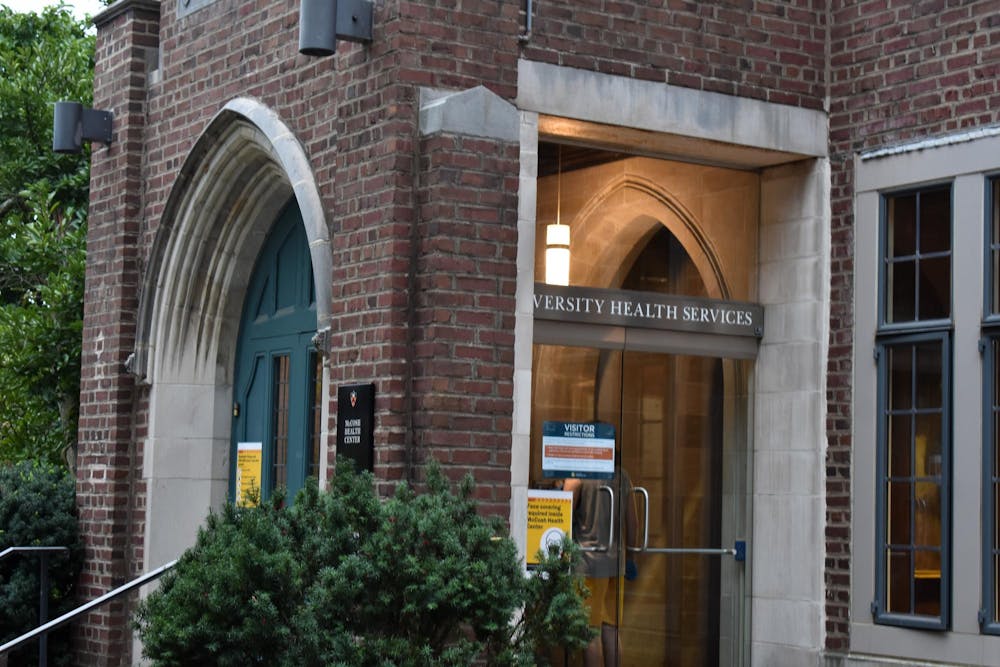Let’s be honest: Princeton has a mental health crisis.
The Daily Princetonian has covered the crisis extensively, offering evidence-based solutions to a problem so immense and devastating that it can feel insurmountable.
It is a tragedy that over one quarter of the Class of 2024 met the criteria for additional depression screening upon graduation and that nearly eight in ten of the Class of 2023 considered pursuing mental health counseling.
Yet one under-discussed solution could go a long way in addressing students’ stress: University well-being days, where there are not just a host of mental health and wellness events but also no classes.
Mental health days can have a wide range of benefits. According to the Mayo Clinic, stepping away from work and other responsibilities for a day can reduce stress, alleviate burnout, boost happiness and morale, prevent mental health crises, and improve long-term productivity. When done right, then, mental health days can have an overwhelmingly positive influence on mental health.
Furthermore, it’s important for Princeton to cancel classes on well-being days instead of just giving students the option to take a day off: Many students would not take advantage of such an opportunity, feeling that they’d fall behind in Princeton coursework if they missed a day of classes.
What’s more, for students who do take a day off, opt-in mental health days might have a negative long-term impact. At Northeastern University, which allowed students to choose two days off from class per semester for their mental health, one student reported “doing even more work than [they] would have had to without taking the Wellness Day.”
That won’t do. Instead, Princeton should incorporate campus-wide well-being days into the academic calendar, creating opportunities for the entire University community to rejuvenate. This has precedent: In 2020, the University of North Carolina at Chapel Hill added several well-being days with no classes to its academic calendar for the first time, and has since expanded the program. It now gives students and faculty two well-being days per semester.

This is not to say the Chapel Hill initiative doesn’t have problems: UNC students criticize it for several reasons. Assignment deadlines often fall on or immediately after the well-being days, forcing students to work instead of rejuvenating. Some instructors give exams the day after, or even assign take-home exams only available on the well-being days. This is obviously counterproductive, because “well-being days” and “work days” cannot possibly be one and the same.
To avoid the pitfalls of the UNC program and introduce a successful well-being day initiative, Princeton must ensure two things. First, the University must change the calendar in a way that balances well-being days throughout the semester without placing them near exam dates.
For example, the Friday before midterm exams should not be a well-being day, because students will spend the time studying rather than rejuvenating. Successful implementation of well-being days requires evenly distributing them across dates that will be most optimal for achieving the stated goal: boosting students’ mental health and giving them a chance to recharge.
Second, the University must make clear exactly what these days will look like: all classes — in-person, virtual, or asynchronous — canceled. Take-home exams should not even be available, much less mandated, on these days. There should not be assignment deadlines on the well-being day or the day after.

The University should also hold wellness events throughout the day, similar to Community Care Day, but must organize and communicate them more effectively through campus listservs and informational flyers. Wellness events will have higher attendance if students are not forced to sacrifice them for class or assignments.
So, when exactly would the well-being days take place? I propose three changes to the fall semester academic calendar, and two in the spring.
In the fall, Princeton should add three well-being days, on a Tuesday, a Wednesday, and a Thursday. In turn, it should extend Thanksgiving Break to last an entire week, which would only involve canceling one Monday and Friday worth of classes. They should also add one week to the beginning of the semester.
In the spring, the University should add five well-being days, and make room in the calendar for this change by adding a week at the beginning or end of the semester, thereby ensuring there are 12 of each day of the week in each semester.
These reforms would balance the calendar by including the same number of instructional days as the calendar currently includes, while simultaneously making the semester less dense and offering students several respites throughout the year.
To be clear, well-being days are just one component of a comprehensive mental health strategy the University ought to be implementing. Princeton must commit to ending its mental health crisis by making long-term care accessible, appointing a zero-suicide czar — and yes, incorporating well-being days into the academic calendar — to make the Princeton experience happier, healthier, and safer.
If implemented correctly and as part of comprehensive change, well-being days would offer students a unique opportunity to restore their mental health, making Princeton happier, healthier, and safer in the long term.
Isaac Barsoum is a first-year contributing Opinion writer from Charlotte, N.C. intending to major in Politics. He believes that loving Princeton means finding ways it can become a safer, happier, more inclusive place. You can reach him at itbarsoum[at]princeton.edu.








